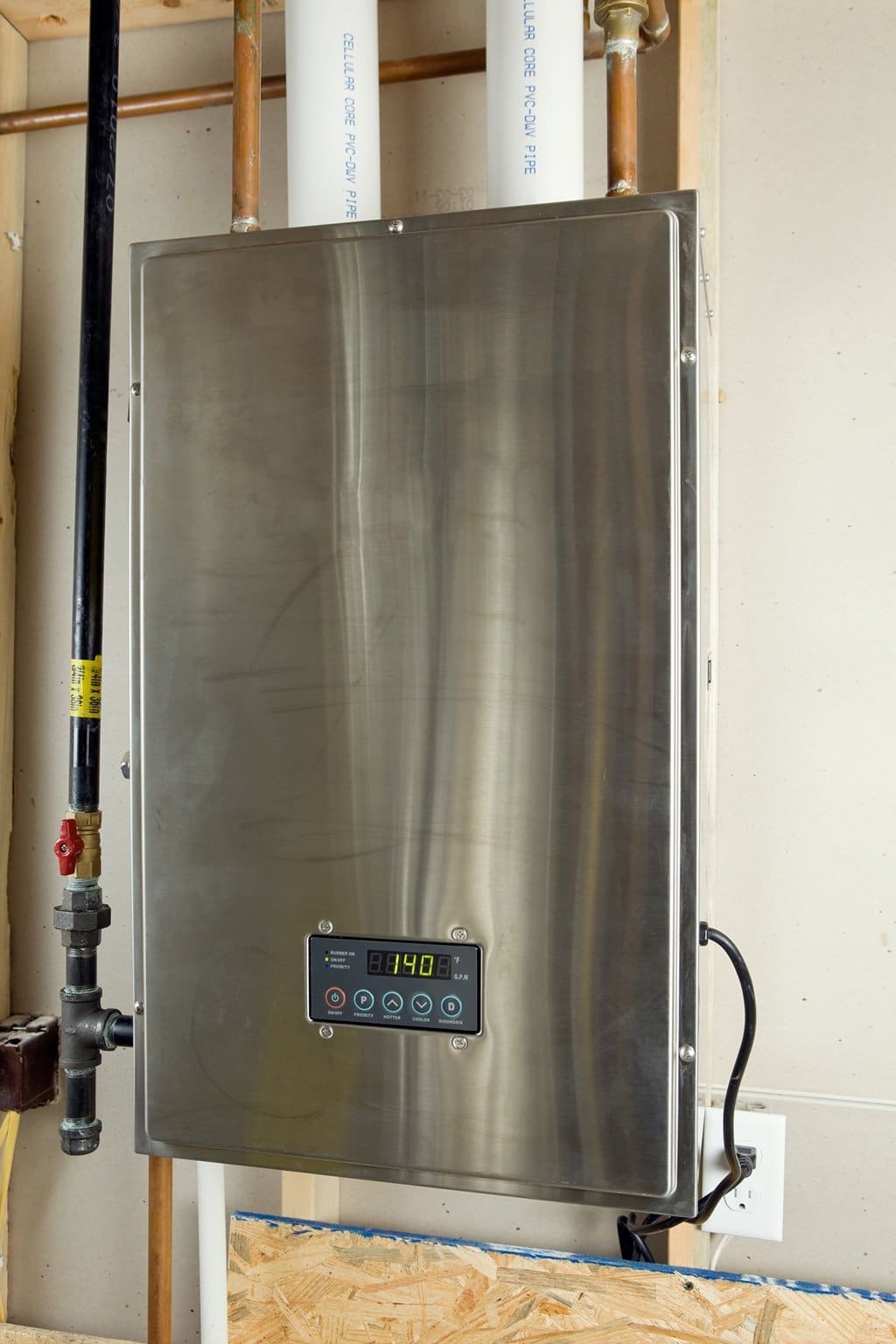
A Guide on How to Choose a Tankless Water Heater | Richardson, TX
A new, tankless water heater can cost anywhere between $1,500 to $2,000 with installations. At such a high price point, you want to ensure you’re making the most informed decision when deciding between tankless systems. Keep reading for a complete guide on how to choose your new tankless system. And, for those who require installation in Richardson, TX, consider bluefrog Plumbing + Drain for all your needs.
What is a Tankless Water Heater?
The tankless systems have been the standard appliance of choice in Europe for years. It’s only in the past couple of decades has this trend made its way over to North America. A tankless system, as the name suggests, are water heaters that don’t require a tank to store water. Instead, the tankless system instantly heats water as it travels through the device.
Tankless water heaters are also called:
- Instantaneous water heaters
- Continuous flow water heaters
- Inline water heaters
- Flash water heaters
- On-demand water heaters
- Instant-on water heaters
What are the Benefits?
The many benefits of tankless systems are precisely why so many homeowners are making the switch to this modern device.
Savings
Tankless systems are most known for reducing utility bills for homeowners. People who switch to a tankless system see a reduction in their water bill anywhere from 8-34%. As the water heater doesn’t hold a tank, it doesn’t need to keep an entire reservoir of water hot always. A conventional water heater keeps a container of water of 40-50 gallons of water boiling for 24 hours a day, every day of the year. On the other hand, a tankless system only heats on demand, and only as much is needed at that moment.
Constant Hot Water
Additionally, with a tankless system, the supply of hot water is endless. A conventional water heater can run out of hot water when the tank empties. So, when a large family tries to take several showers, wash dishes, and do laundry in a short period, they quickly run out of hot water. This problem never happens to homeowners that switch to the tankless option.
Longevity
On average, a tankless water heater will last 20 years or more, with regular maintenance. This is much longer than a conventional water heater, which typically lasts between 8-12 years.
Compact & Design Friendly
Without a giant tank, your water heater becomes a small, almost unnoticeable device. Most tankless systems can be mounted on a wall, making them compact and aesthetically pleasing in the home.
Types of Tankless Water Heaters
There are two types of tankless water heaters: electric and gas. The most significant difference between the two options is efficiency. Electric tankless systems tend to be 98%+ efficient, while gas tankless systems are only 80-85% efficient. However, there are other factors to consider, as well.
Gas System
- Can be cheaper to run than electric
- Typically, will last longer than electric
- Safer than conventional gas water heaters
- Requires venting so installation spots can be limited
- Requires an existing gas supply line
- Requires more frequent maintenance
Electric System
- An electric tankless system is cheaper to purchase (typically) than the gas counterpart
- More affordable to install than gas
- Less of an environmental impact than gas
- While gas is more economical to run, electricity is predicted to remain a steady average for the price while gas is expected to see huge spikes in price in the next few years.
- If your breaker panel is full, a new subpanel may need to be installed to accommodate the new tankless electric water heater
- Don’t require venting, which saves time, money, and space. It also allows the homeowners to choose from a wider variety of spots to install the water heater
Choosing the Size of Your Home
After deciding if you want a gas or electric water heater, you need to tackle the size of your tankless water heater. While a conventional water heater is chosen by the amount of water your family requires (due to the tank’s capacity), a tankless system focuses on water flow.
- Determine Flow Rate
A tankless system is given a BTU input and efficiency rating. These ratings determine the appliances’ flow rates, expressed in gallons per minute (GPM). The first step is to assess your family’s peak demand flow rate as GPM. Note your peak demand flow rate should consider all the devices your household might use at the same time, such as shower, dishwasher, and laundry.
- Determine Temperature Rise
Next, you determine your home’s temperature rise. You will need to measure the cold ground water’s temperature as it enters your home. Then assess your desired hot temperature for your water and subtract the difference between the two.
- Pick Your Tankless System
Lastly, pick a model of tankless system that can provide you with the flow rate and temperature rise you need.
This process can seem overwhelming, and to be quite honest, it’s quite technical. It’s highly recommended you seek the advice of a professional plumber on their recommendations for your household rather than attempting to figure this out on your own.
Pro Tip: Don’t Forget Warranties
Lastly, don’t forget to choose the right warranty for your household. A tankless water heater is an expensive appliance and an investment you want to last a while. Warranties will vary for tankless systems from model-to-model and manufacturer-to-manufacturer.
Read all the terms and conditions of your warranty. For example, many manufacturers will require that you register your tankless heater. Without doing so, your warranty will never technically start. Additionally, many manufacturers will require professional installation with proof of installation, otherwise, the warranty will be void.
A reasonable warranty is a sign that the manufacturer stands behind their product. A tankless system is supposed to last several years, so the warranty should similarly span many years. In general, you want to look for a warranty that is within these ranges:
- Heat exchanger: 10-15 years
- Parts: 2-5 years
- Labor: 1 year
bluefrog Plumbing + Drain Richardson, TX
For the residents of Richardson, TX, bluefrog Plumbing + Drain is your top plumber choice for tankless water heater installation. bluefrog Plumbing + Drain offers full-service plumbing, handling any residential plumbing needs with qualified, certified plumbers. Contact us to schedule your appointment today.




















